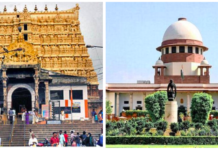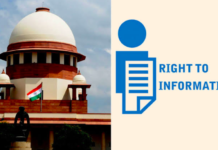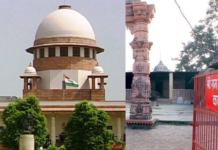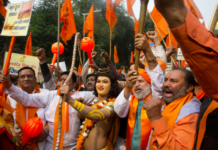Supreme Court will take up case regarding privacy and linking mobile numbers to Aadhar. But why this fuss? Privacy will not stand `naked’.
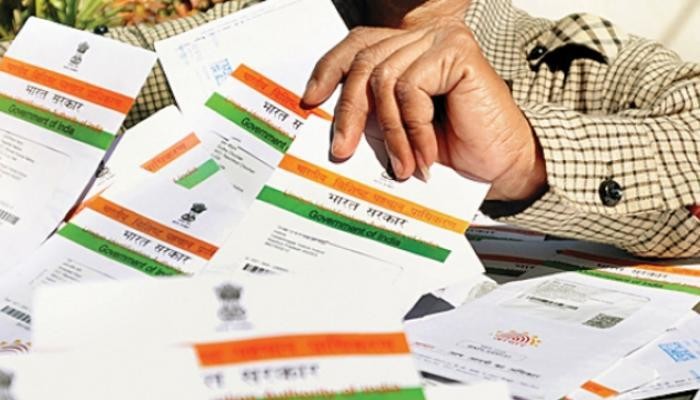
As winter chill sets in over New Delhi, the Narendra Modi government is likely to face some tough time over the issue of the cradle-to-coffin tracking system called Aadhar. A Constitution Bench will hear petitions end November, just days before the elections to Gujarat Assembly on December 9 and 14. Of course, a verdict is not expected in such a short span to put the Modi government on the mat, but the Supreme Court is likely to raise some probing questions that could become potent ammunition in the hands of the Opposition, especially the Congress.
The court will be hearing a bunch of petitions challenging the Centre’s decision to make Aadhar mandatory for availing about 135 services and government welfare schemes. Also in the heart of the bunch of petitions is the move of the Centre to link mobile phone number to Aadhar.
While availing benefit schemes through Aadhar may not strike a chord as it concerns only a section of the population, the mobile link is a bigger and cumbersome issue. Mobile users have objected to the laborious procedure to link the number, but the government has stepped in to ease the situation through methods like self-verification OTP.
What assumes significance is that a larger Constitution bench will be hearing the petitions in the back drop of an earlier landmark ruling by a nine-judge constitution bench that had held that the Right to Privacy is a Fundamental Right under the Constitution.
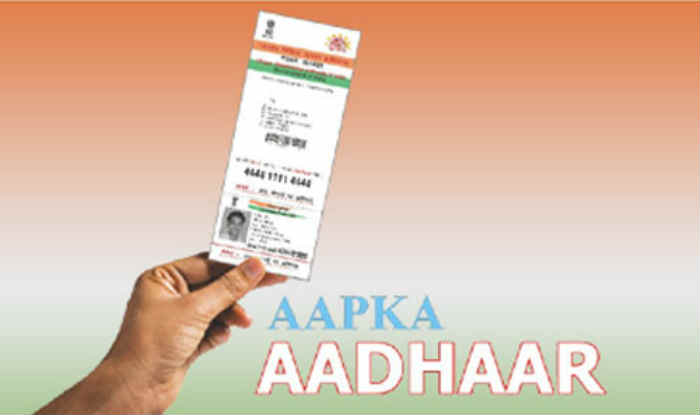
So, the prime question that will be addressed is: does Aadhar violate the tenets of privacy laws enshrined under the sacred fundamental rights in the Constitution.
From the debates in the media after the judgement on privacy as a fundamental right, should one assume that privacy is only a matter between State and citizen? Fearful scenarios are being painted about the possible ways in which Aadhar may be used for mining data and tracking individuals. But a coloured and blinkered Aadhar-centric approach to privacy is both ill-informed and misleading. It is like trying to close one door in a house with several doors, all open.
The benefits of Aadhar are many. Well-intentioned Government programmes have been rendered useless by the inability to precisely target beneficiaries. Aadhar remedies this through unique identification and authentication of beneficiaries, de-duplication, `killing’ ghost beneficiaries, nailing culprits and tax evaders, checking duplicate driving licences etc.
If Aadhar was a threat to privacy, what about internet and mobiles?
Consider the following:
What about ‘non-state actors’ ? Technology companies, e-commerce, media, businesses, private establishments on a daily basis, lay hands on data that you feel is private. While downloading or using an App, the moment you tick on the box agreeing to terms and conditions, your privacy is completely lost to the world. The App provider has access to your location, email contacts, photographs etc. Is this not an intrusion on privacy?
Some argue that using Aadhar, governments will be able to virtually create a profile of yours for surveillance: where you go, what you do, whom you met etc.
Well, forget government, top firms like Google know your likes and dislike, where you ate last night and where you are or were. A popular mobile service provider that shook the Indian markets insisted on an Aadhar number to get a SIM connection. What is the difference between this and Aadhar linkage?
Every time we start browsing the internet, we are opening up our private lives and allowing intrusions that we are not aware of. Anyone with a cellphone can be tracked by the service providers. Conversations can be tracked and messages read by third parties. Is this not an intrusion of privacy?
Take the media itself for example. Under present laws, persons affected by intrusive or false reporting can only file defamation cases. Now, ‘breach of privacy’ may also become actionable.
Media houses photograph or videograph people for their stories, sometimes secretly and access private documents. Is this not an intrusion into privacy?
Private businesses too snoop on people. Highend shops, malls, jewellers and super markets use CCTV cameras for surveillance. Some offices too use CCTV to keep a tab on employees. In many private establishments, biometrics-based attendance and visitors passes with photos are mandatory.
E-commerce sites insist on registration before their services are used. And they track your likes and dislikes. Offers pour in based on your likes. Mobile numbers are almost being used like identity numbers. And these numbers are readily shared without thinking twice. So, what makes Aadhar different?
Some cellphones use biometric access with the data stored not in India but abroad. Photographs have been used for ages to identify, name and track individuals.
Are all these not an intrusion into privacy? Did it need an Aadhar to kindle the privacy debate in India? Unfortunately, our obsession with privacy seems to begin and end with Aadhar.
By delinking Aadhar with mobile number, do you think your privacy becomes sacred and is protected? Sorry, no. The joke around is that Google knows you better than what you do about yourself or your Aadhar!
The government is keen to link mobile number with Aadhar because this is the only means by which central identification cannot be misused.
Since the government’s directive to mobile phone operators that they have to mandate linking of mobile numbers to Aadhar in February this year, 50 crore subscribers have adhered to the new norms. That still leaves out 60 crore subscribers who are yet to fall in line, including Mamata and her supporters.
But when the case comes up before the larger bench, it will surely ask the Modi government to address the most basic questions in a democracy governed by the law: what are the privacy rights of its citizens; and are they protected equally, with the same justice for the rich and the poor alike?
The contention of the petitioners is that the linking of Aadhar with bank accounts and mobile numbers is illegal and unconstitutional as it violates fundamental rights to privacy. The petitioners have also strongly objected to the CBSE’s move to make Aadhar mandatory for students to appear for exams.
This is nothing but political. Aadhar has now been turned into a pro-Modi and anti-Modi issue. This is an unfortunate development that has reduced complex issues into simplistic pro- and anti-Modi arguments.
Apart from the legal angle, many see Aadhar as a monster. So, what are the real issues, apart from the legal ones?
The first is the security of the Aadhar database. There are multiple and voluminous reports trying to prove database isn’t secure. There are equally voluminous reports to show how safe it is. But there is no final word. However, the architect of Aadhar, Nandan Nilakeni, is categoric – that Aadhar database is absolutely safe.
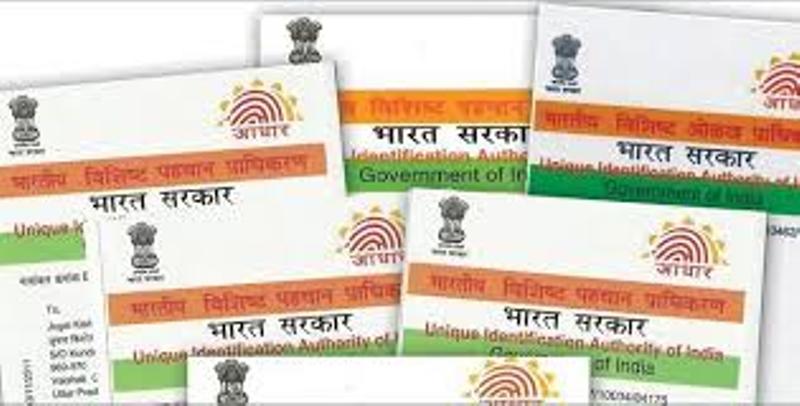
Next is the reliability of Aadhar database. There have been few and glaring instances of errors in authentication. The government’s larger welfare regime have ways to deal with such instances, but ditching the statistics is like throwing the baby out with the bathwater. That surely is not a desired resolution mechanism.
The lack of a privacy law is the third. On this matter, the government stand is that any order dealing with privacy and data protection should be held back until the government completes the process of formulating a draft Data Protection Bill. This process was initiated by the Centre on July 31, to assuage fears that individual data in possession of the government is absolutely safe.
A committee under former Supreme Court judge justice BN Srikrishna was formed to look at the entire gamut of data protection norms and mandated to recommend changes that can be made to develop a more robust system. The government wants us to wait until the committee has fulfilled its mandate.
If used well, Aadhar could simplify life and transactions, and also ensure that the government’s welfare schemes are better-targeted and reach the needy, not greedy middlemen who are the bane on society. It could be the answer to various problems faced by hundreds of millions of Indians who desperately want to be on the grid — not off it.
But shooting Aadhar in the foot is not just the Opposition. Even senior BJP leader Subramanian Swamy terms compulsory Aadhar ‘threat to national security’. He was responding after the Supreme Court asked the central government to file its viewpoint to a petition that challenged linking of Aadhar with mobile numbers within 4 weeks.
And he is sure that the Supreme Court will strike it down. Swamy’s logic is that Aadhar is a disaster as it is based on existing data systems. Software is prepared by foreign companies.
But Nilakeni says if that is the case, the ubiquitous smartphones are a bigger threat. They are also made by foreign companies and lot of data is stored including bank details.
Finally, according to Arun Maira, former member of Planning Commission of India, “When nuclear technology was discovered the world thought energy security is a thing of the past. But post World War II, one of the scientists wrote a moving essay expressing his dismay at what he was part of. Aadhar is at a similar crossroads.”
So, is Aadhar is an utopia or dystopia? The ball is now in the Supreme Court.
































